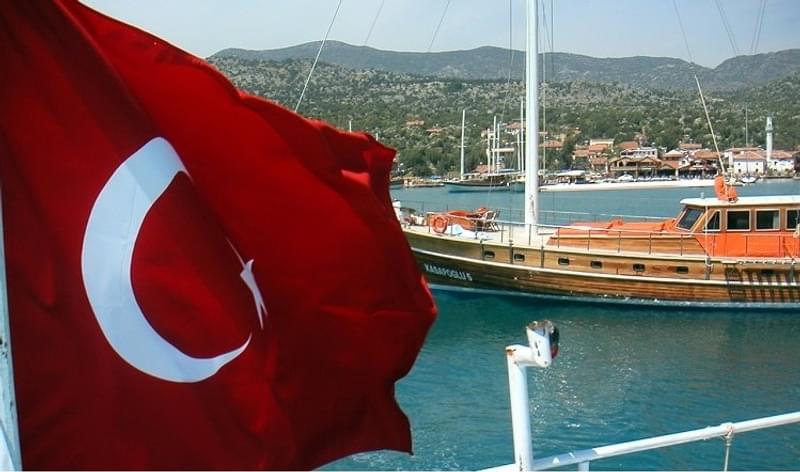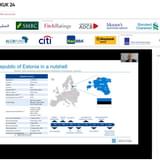The 16 April referendum in Turkey sought approval for 18 constitutional amendments affecting 72 articles contained with it, aimed at widely expanding the executive powers of the presidency.
A victory for the ‘Yes’ camp was declared by President Recep Tayyip Erdogan 17 April with a reported margin of 51.4% of the vote, a result contested by the country’s main opposition party – the Republican People’s Party (CHP) – and criticised by European election observers.
The newly emboldened President dismissed the former as “sore losers,” and has so far refused to comment on the Organization for Security and Co-operation in Europe’s (OSCE) referendum observation mission findings – which include reports of ‘No’ supporters being disproportionately subject to police intervention on the day of the vote and widespread arrests of journalists sympathetic to rejecting the amendments, among other things.
“The campaign rhetoric was tarnished by a number of senior officials equating ‘No’ supporters with terrorist sympathizers. In numerous cases, ‘No’ supporters faced police interventions and violent scuffles at their events. These violations contravene OSCE commitments, Council of Europe standards and other international obligations regarding freedom and equality in the campaign,” it said in its follow-up report.
“The legal framework for the referendum neither sufficiently provides for impartial coverage nor guarantees eligible political parties equal access to public media… The law gives preference to the ruling party and the president in the allocation of free airtime, and the SBE’s authority to sanction for biased coverage was repealed. Freedom of expression was further curtailed under the state of emergency; the arrest of an unprecedented number of journalists and the surge of media outlet closures has led to widespread self-censorship. OSCE/ODIHR media monitoring results showed that the ‘Yes’ campaign dominated the media coverage.”
A Done Deal – Now, On with the Reforms
Despite some misgivings, most observers and analysts accept the referendum outcome as a done deal, and some believe the result could help make space for further economic reform. After a fairly substantial dip in GDP growth in the last half of 2016 and two sovereign rating downgrades to ‘junk’ in early 2017, the country needs to get back on the path to reform.
“Turkey's volatile political and security environment damaged economic performance in 2016. A better-than-expected 4Q16 and revisions to 9M16 outturns mean growth was stronger than we forecast, but it still halved to 2.9%,” explained Paul Gamble, Head of Emerging Europe Sovereign Ratings at Fitch in a recent note.
“The AKP has a developed economic reform programme, but little has been implemented in recent years due to the fluid political backdrop, and structural weaknesses, including high net external debt and external financing requirements and poor composition of growth, have become more pronounced.”
Indeed, the referendum result has put the focus squarely back on AKP and President Erdogan, who, analysts argue, need to redouble their efforts to get the economy back on track.
“Deputy Prime Minister Mehmet Simsek said before the referendum that the removal of political uncertainty would enable the government to "accelerate reforms starting [in] May 2017" to improve Turkey's investment environment and the tax system. Successful economic reform was a feature of the first half of Erdogan's rule,” Gamble said.
“The government may also loosen fiscal policy to lift growth. The political commitment to fiscal prudence has been strong – additional revenue raising measures were introduced last year to keep the deficit within its target, for example – and Turkey has some fiscal headroom. Its general government debt/revenue ratio is under half the 'BB' category median due to primary surpluses and a broader revenue base. Nevertheless, use of off-balance-sheet stimulus picked up ahead of the referendum, most notably through credit guarantees that are increasing the sovereign's contingent liabilities, albeit from a low base.”
Backed into a Corner?
The market largely welcomed the referendum result, data suggests. Yields on benchmark government bonds have tightened in the week since the vote from 5.290% to 5.188%, while the lira strengthened from TRY5.298 to TRY5.188 per US dollar during the same period.
Turkey’s economy put in better than expected growth towards the tail end of last year, creating positive momentum for further structural reforms.
Boosted by an increase in private consumption – household demand grew 5.7% month on month from Q4 2016 – GDP expanded 3.5% in the last quarter of 2016. Official statistics from the Turkish Statistical Institute (Turkstat) show the economy grew just 2.9% in 2016, down from 6.1% the previous year.
Despite a swelling current account deficit – Turkey’s exports stood at US$12.1bn, a 2% fall year-over-year while it imports rose 2% to US$15.2bn in February 2017 – the new figures have prompted an outlook upgrade from Moody’s, which revised its growth forecast for 2017 to 2.6% of GDP, up from 2.2% previously. The rating agency also upgraded its 2018 growth forecast to 2.9% of GDP in 2018, up from its previous estimate of 2.7%.
A fund manager based in London, who spoke with Bonds & Loans on the condition of anonymity, agreed, adding that Erdogan’s and AKP’s prospects in forthcoming elections depend more than ever on whether they successfully build on that momentum.
“[Erdogan] and the party sold this referendum as a kind of defining break with the past – and particularly, the political volatility that characterised Turkey since 2015, when AKP lost its long-held parliamentary majority. In a sense, though, it’s a double-edged sword; the government still has a pretty big task on its hands in terms of much needed labour, tax and entitlement reforms, and if they can’t deliver, they have effectively backed themselves into a corner,” he said.
“Though almost inconceivable given its wide-reaching support today, AKP has a much bigger chance of losing the next election if it – and Erdogan – can’t move the economy in the right direction sustainably because they will have far fewer pairs of feet to lay the blame at. Unless they can find another straw man, they could be punished at the polls.”
The Turkish government has already loosened fiscal policy to help stimulate growth, including offering incentives to help boost employment in the country’s agribusiness sector, and extending tax breaks to help boost tourism – which has suffered significantly following a number of high-profile terrorist attacks in the country, and a war on its south-eastern borders that continues to rage on. But using its limited fiscal headroom to extend temporary tax breaks and incentives is unsustainable in the long run. With the next general election not scheduled until 2019, Turkey – barring any major shocks – has a clear path to implement necessary structural reforms. Whether Erdogan and AKP can deliver on this over the next 6-18 months will be closely watched, not the least of which because the former’s assumed invincibility may be tested.









